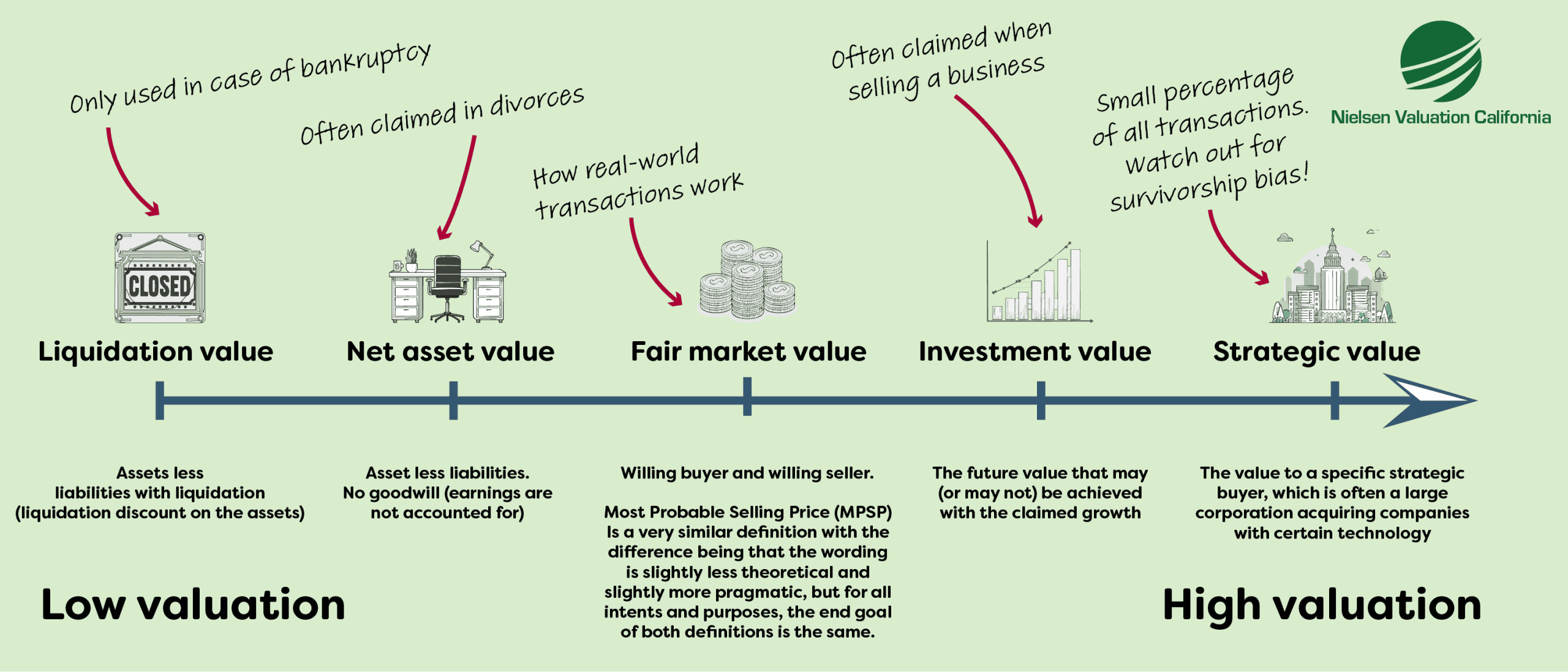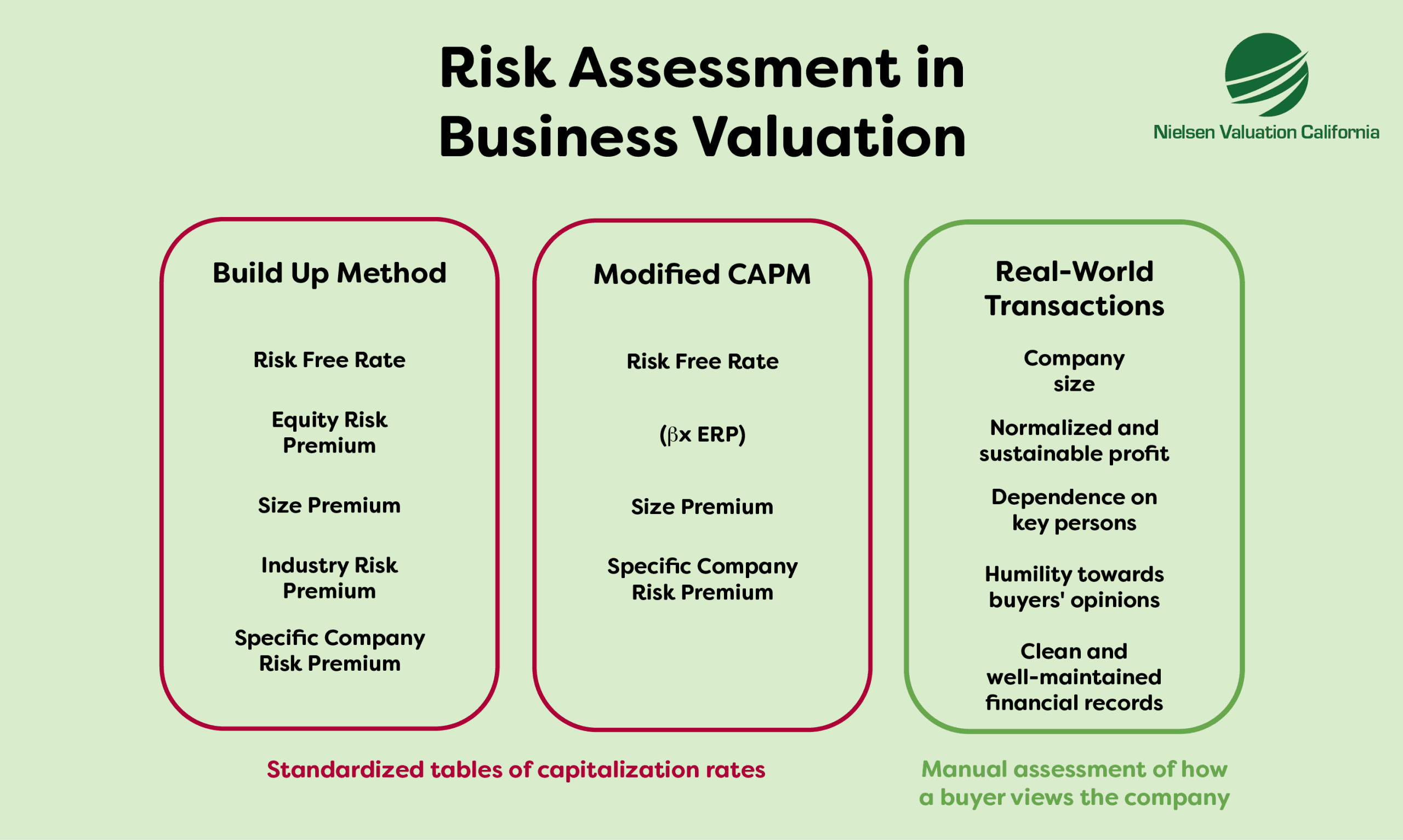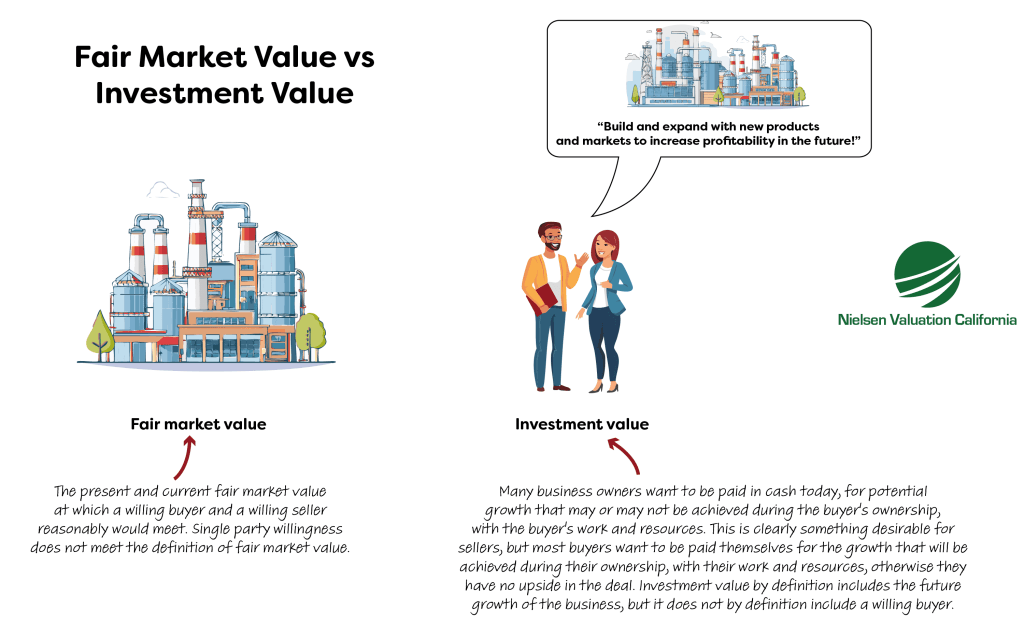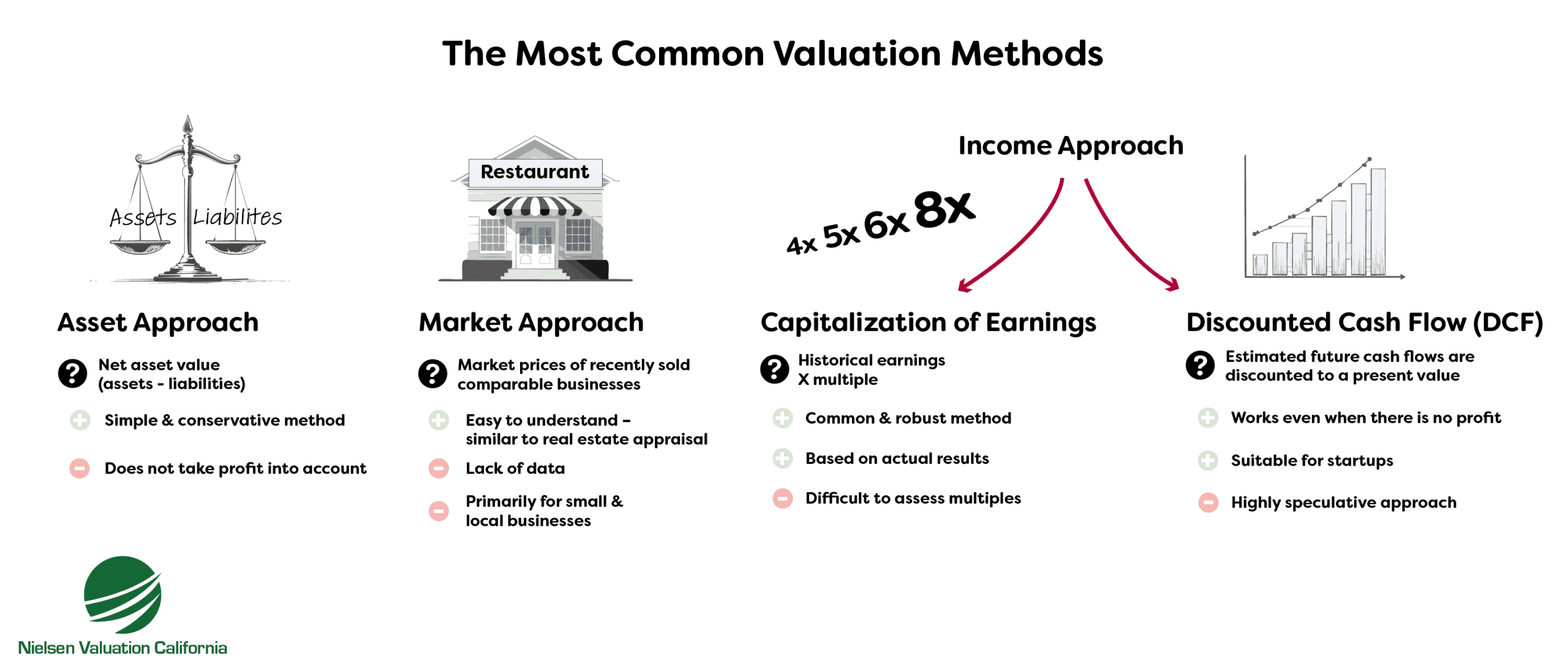Independent business valuations in Los Angeles for every scenario
Nielsen Valuation California delivers objective business appraisal services throughout Los Angeles and Southern California. Our conclusions are evidence-based, non-speculative, and aligned with IRS guidance: credible for negotiations as well as courtroom use. Reach out for a tailored quote.

Our Services in Los Angeles
Nielsen Valuation California supports owners, buyers, attorneys, and advisors across L.A. with clear, defensible valuations in situations such as:
- Buying or selling a business
- Restructuring or winding down a company
- ESOP engagements
- Tax planning and compliance
- Litigation and dispute resolution
- Partner buyouts
- Buy–sell agreement pricing
- Shareholder and partner disputes
- Financial reporting & strategic planning
- Bank financing and funding support
- Divorce valuations
- Investor presentations and capital raises
- Estate planning and probate
- Insurance and risk needs
- Mergers and acquisitions
- And more!


Why Choose Us for Your Los Angeles Business Valuation?
Owners pick Nielsen Valuation California when they want an independent opinion grounded in how the business truly operates. We look past headline numbers to determine fair, defensible value, always mindful of why the appraisal is needed.
Our local presence in Los Angeles means we understand the SoCal market. In-person meetings and on-site reviews are easy to arrange when they add clarity to the analysis.

Full IRS alignment—no guesswork
Different analysts can reach very different conclusions. That’s why our north star is fair market value, not hopeful projections.
Per IRS Revenue Ruling 59-60, credible valuations do not rely on canned formulas, standardized cap-rate tables, or theoretical marketability discounts.
We prepare each report to fully comply with this guidance, which matters more than any credential list. Practically, that means we study the company, its economics, and its risks—then conclude value the market can recognize.

We uncover the story behind the numbers
Our job is to surface the economic reality behind your financials.
Relying solely on the income statement and balance sheet often leads to the wrong answer.
Here’s why:
- Income statements can include non-recurring, unusual, or owner-specific items that distort earnings.
- Balance-sheet values rarely mirror current market pricing for assets and liabilities.
So we normalize both the P&L and balance sheet before we calculate value.
The outcome is an estimate of fair market value, what informed, willing parties would agree to in an open market. Where appropriate, we then apply discounts based on the facts of the case.

Rigorous methods—applied with judgment
Many theoretical approaches look tidy on paper but fail in practice. We never default to pre-set formulas. Instead, we select one or more methods that fit the business model and the purpose of the assignment.
Our toolkit includes:
- Asset approach – economic net asset value (at market)
- Income approach – earnings or cash-flow driven
- Market approach – informed by comparable Los Angeles transactions when reliable data exists
Choosing the right approach and tailoring it to the facts keeps speculation out and yields a defensible conclusion that counterparties can trust.

We always tailor the scope to you
There is no “one size fits all” approach to valuation. From the first conversation, you’ll get a personal response (often from Mr. Nielsen), a free 30-minute consultation, and a quote sized to your needs—so you never pay for work you don’t require.
How Much Is My Los Angeles Business Worth?
If you plan to sell your company, focus on market value: the price a capable buyer will actually pay, rather than a theoretical spreadsheet output.
One common trap is expecting buyers to pay today for tomorrow’s potential. In reality, buyers want to capture the upside they’ll have to create and fund. A balanced, reality-checked valuation helps align expectations.
Another pitfall is survivorship bias. It’s easy to cite success stories like Meta, Alphabet, or Spotify and assume a similar path. Experienced investors know only a fraction of ventures reach those heights, and they price the risk accordingly.

Need a Business Valuation in Los Angeles?
Nielsen Valuation California offers a free 30-minute consultation and a customized proposal for your situation.

